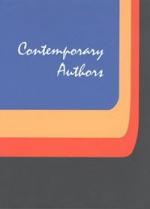|
This section contains 809 words (approx. 3 pages at 300 words per page) |

|
A transitional Victorian or an early modern in thought, Pratt, like [Sir Charles G. D.] Roberts and like Samuel Butler, wrote essentially from the impulse to reconcile Christianity and evolutionary thought. His poetic cosmology explicitly embodies the evolutionary ethics of T. H. Huxley's famous Romanes lecture, "Evolution and Ethics" (1893), with the exception that Pratt identifies the highest evolution of ethical man with Strauss' historical Jesus and describes the act of ethical choice in terms of Wilhelm Wundt's mechanistic psychology.
Strongly influenced by his Newfoundland experiences of continued struggle against an implacable nature, a struggle which he characterizes in The Book of Newfoundland (1937) as "the ironic enigma of Nature in relation to the Christian view of the world", and by his early training in theology, much of Pratt's poetry can be seen as the attempt to make man more equal to the struggle against nature. Nature, in this sense...
|
This section contains 809 words (approx. 3 pages at 300 words per page) |

|


